In the ever-evolving world of education and learning, where details moves abundantly and access to expertise is only a click away, student-driven encyclopedias are emerging as a dynamic tool in the learning process.

These systems not only supply trainees with a database of information however additionally encourage them to add, edit, and curate web content, cultivating a collective and interactive discovering environment.
As educational standards change towards more participatory and inclusive models, the idea of student-driven encyclopedias embodies this improvement. These platforms empower trainees to become energetic individuals in expertise production, connecting the space between standard textbook learning and modern-day electronic sources.
The Concept of Student-Driven Encyclopedias
Student-driven encyclopedias are electronic platforms where trainees collectively collect, verify, and disseminate info on a large selection of subjects. Unlike standard encyclopedias, which are often written by professionals, these systems leverage the collective efforts of students to create an extensive body of expertise.
At their core, student-driven encyclopedias are made to cultivate essential thinking, research skills, and digital proficiency amongst pupils. By taking part in the procedure of content production, trainees learn to browse and assess information critically, abilities that are crucial in today’s homework solver information-rich society.
Furthermore, these systems work as a room for trainees to explore their rate of interests and share their expertise. This democratic method to knowledge development guarantees that a diverse series of perspectives and voices are represented, enhancing the learning experience for all participants.
- Students acquire hands-on experience in study and web content development.
- Urges collaboration and peer interaction.
- Advertises a deeper understanding of subject.
- Fosters inclusivity and diversity in knowledge depiction.
Basically, student-driven encyclopedias change pupils from easy receivers of information right into energetic factors, instilling a sense of possession and obligation in their educational journey.
Benefits of Student-Driven Encyclopedias
One of the principal advantages of student-driven encyclopedias is the advancement of necessary 21st-century skills. As pupils engage in the procedure of material production, they hone their crucial thinking, electronic proficiency, and interaction skills, every one of which are vital in today’s interconnected world.
Furthermore, these systems motivate a collaborative knowing environment, where trainees can interact to validate information, argument different viewpoints, and co-edit posts. This peer-to-peer interaction not only boosts learning results yet likewise fosters a feeling of community and mutual regard amongst pupils.
Additionally, student-driven encyclopedias supply a platform for showcasing pupil work. As pupils add to the encyclopedia, they develop a portfolio of their research study and writing, which can be indispensable for further academic and professional searches.
Difficulties and Limitations

Despite the numerous benefits, student-driven encyclopedias additionally deal with certain challenges. Ensuring the precision and integrity of info is vital, as these systems rely on payments from trainees that may not yet possess expert-level expertise.
- Keeping material high quality and precision.
- Offering adequate supervision and advice.
- Guaranteeing equitable access and inclusivity.
To mitigate these difficulties, lots of student-driven encyclopedias apply a system of checks and balances, where content is assessed by educators or professionals before magazine. This guarantees that the details provided is both exact and credible, maintaining the honesty of the platform.
The Future of Student-Driven Encyclopedias
As modern technology continues to breakthrough and the landscape of education and learning progresses, the capacity for student-driven encyclopedias is huge. These systems have the capability to not only complement traditional instructional sources however also redefine the way expertise is acquired and shared.
In the future, we may see student-driven encyclopedias incorporating advanced technologies such as artificial intelligence and artificial intelligence to enhance content curation and customization. Furthermore, they might increase past textual information to consist of multimedia material, offering a much more immersive discovering experience.
Encouraging the Future Generation
Student-driven encyclopedias hold the assurance of equipping the next generation of learners. By putting pupils at the helm of expertise production, these platforms encourage long-lasting discovering, interest, and intellectual self-reliance.
Finally, as educational systems remain to innovate, student-driven encyclopedias stand as a testimony to the power of cooperation and the importance of pupil agency in the learning process. By accepting these systems, we unlock to a more inclusive, interesting, and vibrant educational experience for all.
